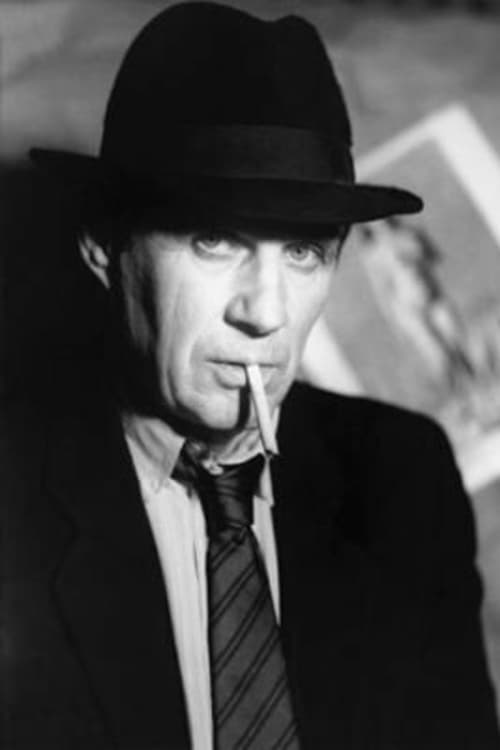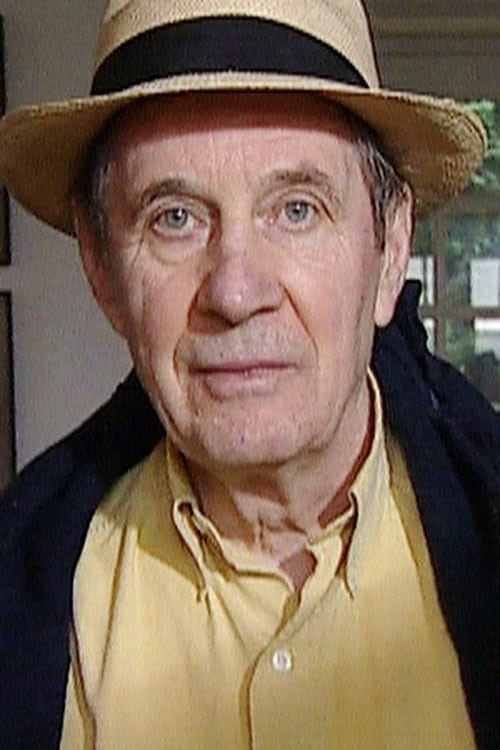
A cinematographic poetry that portrays the artistic link between the French filmmaker André S. Labarthe and his disciple, the Uruguayan filmmaker Gabriela Guillermo. The letters that were written over the years testify, not only to the mutual affection and admiration, but also their will to one day make a movie together. After trouble in the production due to the teacher's delicate health and his subsequent death, we witness in the winter landscapes the creative complicity between both filmmakers.

Director
A “Cinéma, de notre temps” series episode directed by french film critic André S. Labarthe, originally aired 22 November 2018.

Self
On the shooting or when talking about it, Mathieu Amalric is preparing Barbara, his film about the iconic singer, starring the incredible Jeanne Balibar.

Director
On the shooting or when talking about it, Mathieu Amalric is preparing Barbara, his film about the iconic singer, starring the incredible Jeanne Balibar.

A “Cinéma, de notre temps” series episode directed by french filmmaker Jackie Raynal, originally aired 29 May 2016.

Director
A “Cinéma, de notre temps” series episode directed by french film critic André S. Labarthe, originally aired sometime around 2015.

Two enigmatic figures with code names, Costello and the Colonel, bound seemingly by some mysterious revolutionary past, engage in an intense conversation concerning the architecture surrounding them, with possible catastrophic consequences.

Self
Five, even six, variations on a theme, commentary and interpretation of the same photograph. An exercise to tell and summarize the history of the Cinémathèque française.

Director
Five, even six, variations on a theme, commentary and interpretation of the same photograph. An exercise to tell and summarize the history of the Cinémathèque française.

Director
A “Cinéma, de notre temps” series episode directed by french film critic André S. Labarthe, originally aired 24 November 2013.

Producer
제임스 베닝과 리처드 링클레이터의 만남은 어울리지 않는 조합처럼 보인다. 한 사람은 영화의 순수성을 지키려는 지사적 실험영화 작가이고, 한 사람은 인디영화로 시작해 할리우드 심장부로 진입한 감독이다. 그러나 두 예술가는 오랜 우정을 나눈 친구이다. 영화적 우정에 대한 이 다큐멘터리는 두 감독의 삶과 영화에 대한 접근방식의 유사성과 차이를 탐구한다. 링클레이터의 씁쓸한 청춘드라마와 베닝의 급진적 실험주의 사이의 명백한 차이에도 불구하고 영화에 대한 저들의 대화에는 격이 없다. 여전히 16미리 볼렉스 카메라로 작업하는 베닝과 할리우드 톱스타들과 일하는 링클레이터가 나누는 대화 사이에는 그들의 영화에서 발췌한 필름 푸티지들이 삽입된다. 마지막 순간 링클레이터의 초기작 에서 두 친구가 걸어가는 푸티지에 볼렉스 카메라를 들고 걸어가는 베닝의 뒷모습이 이어진다. 각자의 길을 가는 두 사람, 그러나 지속될 우정을 암시하면서 영화는 닫힌다. (2014년 제15회 전주국제영화제_장병원)

Producer

Director
A “Cinéma, de notre temps” series episode directed by french film critic André S. Labarthe, shown 12 October 2012.

Director
A “Cinéma, de notre temps” series episode directed by french film critic André S. Labarthe, shown 12 October 2012.
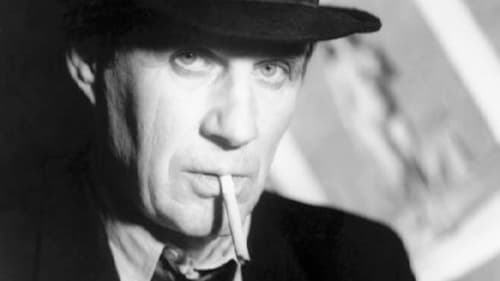
Producer

Self
The film retraces Jean-Luc Godard's notorious exhibition at the Centre national d'art et de culture Georges Pompidou in Paris between 11 May – 14 August 2006.

Director
A “Cinéma, de notre temps” series episode directed by french film critic André S. Labarthe, originally aired 24 March 2012.

Director
A “Cinéma, de notre temps” series episode directed by french film critic André S. Labarthe, originally aired sometime around 2011.

Director
A “Cinéma, de notre temps” series episode directed by french film critic André S. Labarthe, originally aired sometime around 2011.

Writer
Bergala makes Erice wander about (DV in hand) between Madrid and Paris remembering those primeval scenes in his education as a filmmaker, retrieving places more alive than ever in his cinéphile memory. Paris-Madrid, allers-retours fuses genealogy & elegy, diving into the roots of Erice’s oeuvre.

A retired Japanese ex-patriot living the life of a bohemian Parnassian painter in Paris loses his latest picture, and wanders into Belleville hoping to reclaim what is rightfully his. Along the way, the drifting stray cat comes into contact with a series of colorful dreamers on a never ending search for love - much like himself.

Self
Mixing interviews, rare archival footage and film extracts, the film shows how Melville's works were impacted by what he experienced in his youth during WWII, and how it structured his whole approach to cinema, not only in its thematic but also in its aesthetics.
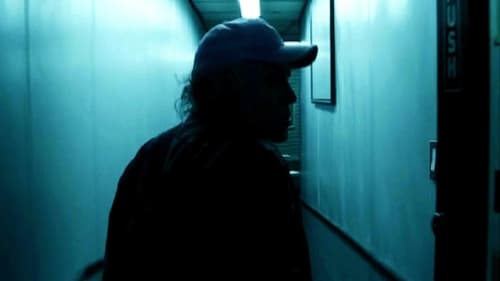
Producer
Intimate portrait of Abel Ferrara: the result is an eccentric road movie, with the restless film maker as a charming, shabby guide around New York by night.

Director
A “Cinéma, de notre temps” series episode directed by french film critic André S. Labarthe, originally aired 4 July 2001.

Writer
The film retraces the last two years of Antonin Artaud.

Director
The film retraces the last two years of Antonin Artaud.

Writer
“I Have to Make the Word Be Flesh” is an insightful and candid interview with the man himself about his films and his motivations. Cronenberg is cheerfully frank about his often grotesque images and controversial subject matter, and clearly relishes in the opportunity to explore the themes and motifs behind each one.

Director
“I Have to Make the Word Be Flesh” is an insightful and candid interview with the man himself about his films and his motivations. Cronenberg is cheerfully frank about his often grotesque images and controversial subject matter, and clearly relishes in the opportunity to explore the themes and motifs behind each one.

Producer

Producer
Made for "Cinéma, de notre temps" series. Interview with Georges Franju (1912-1987), a figure of immense importance in the history of French cinema, not primarily for his films (exceptional though many of these are) but for being the co-founder, with Henri Langlois, of the Cinémathèque Française in 1936, France's most famous and important film archive.

Director
Made for "Cinéma, de notre temps" series. Interview with Georges Franju (1912-1987), a figure of immense importance in the history of French cinema, not primarily for his films (exceptional though many of these are) but for being the co-founder, with Henri Langlois, of the Cinémathèque Française in 1936, France's most famous and important film archive.

Writer
The film contains the interviews with Pierre Klossowski and Jacques Pimpanneau.

Director
The film contains the interviews with Pierre Klossowski and Jacques Pimpanneau.

Producer
Janine Bazin and André Labarthe approached Chantal Akerman about making a film for the series; eagerly, Akerman proposed a number of filmmakers—but all had already been done. So she suggested…“How about me?” Akerman creates a fascinating self-portrait that takes us through her career, aided by critics Emmanuel Burdeau and Jean Narboni and filmmaker Luc Moullet.

‘12월의 자화상’이란 부제가 붙은 고다르의 자화상. 1995년, 영화탄생 백주년과 고몽 창립 백년을 기념하기 위해 만들어진 작품으로 스위스의 레만 호수와 자택의 아틀리에를 배경으로 역사와 영화에 대한 고다르의 견해를 들려주고 있다. 짐 호버먼이 “이 영화의 많은 부분이 죽음, 부재, 침묵으로 채워져 있다”고 쓴 것처럼, 노령의 예술가가 그려내는 자화상은 큰 감동을 준다. 이미지와 소리의 관계에 관한 실험적인 영상이 돋보이는 작품이기도 하다.

Director
Martin Scorsese behind a flatbed commenting on excerpts from his film Taxi Driver.

Director
A “Cinéma, de notre temps” series episode directed by french film critic André S. Labarthe, originally aired 16 May 1994.

Director
Part of the Cinéastes de notre temps series.

Creator
Paulo Rocha catches up with his “beloved subject” in Porto, where he made Douro, Faina Fluvial in 1929, and where today Oliveira reminisces about the figure of his father, his first experience of cinema as an actor, his past as a racing driver, his first technical experiences…

Producer
Paulo Rocha catches up with his “beloved subject” in Porto, where he made Douro, Faina Fluvial in 1929, and where today Oliveira reminisces about the figure of his father, his first experience of cinema as an actor, his past as a racing driver, his first technical experiences…

Producer
Made for "Cinéma, de notre temps" series. In a peaceful residence near the Loire River, Chabrol raised his favorite characters : monsters. In this documentary, we can see him actively working on the adaptation of Simenon's novel "Betty", and answering the questions posed by Jean Douchet (his former colleagues at the magazine "Cahiers du Cinéma"). Excerpts from The Butcher (Le Boucher), Violette Nozière, The Hatter's Ghost (Les Fantômes du chapelier) and Masks (Masques) will punctuate their meaningful and witty conversation.

Director
Made for "Cinéma, de notre temps" series. In a peaceful residence near the Loire River, Chabrol raised his favorite characters : monsters. In this documentary, we can see him actively working on the adaptation of Simenon's novel "Betty", and answering the questions posed by Jean Douchet (his former colleagues at the magazine "Cahiers du Cinéma"). Excerpts from The Butcher (Le Boucher), Violette Nozière, The Hatter's Ghost (Les Fantômes du chapelier) and Masks (Masques) will punctuate their meaningful and witty conversation.
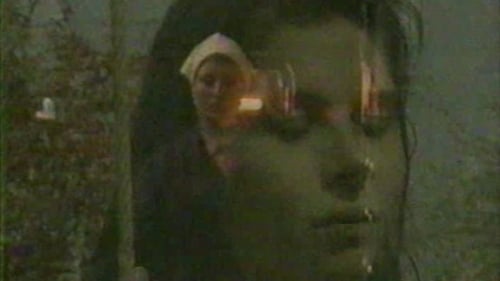
Alcide Jolivet
A famous French filmmaker is hired by a major Hollywood producer to make a documentary on the state of post-Cold War Russia. The filmmaker, though, subverts the project by stubbornly remaining in France and casting himself as the title character of Dostoyevsky's "The Idiot," offering up a series of typically Godardian musings on art, politics, the nature of images and the future of cinema.
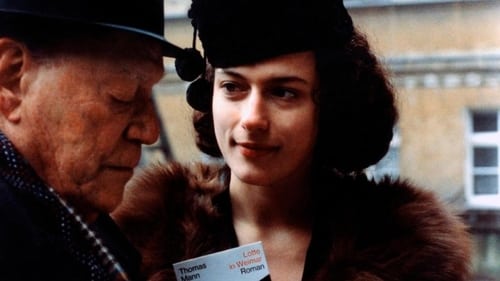
Récitant
통일독일을 여행하는 자의 포스트 모던 로드무비.
로셀리니의 47년작 "독일영년"이 2차 대전 직후의 독일에 대한 이야기라면 고다르의 "신독일영년"은 사회주의의 붕괴와 베를린 장벽이 무너진 통일독일 직후를 말한다. 그리고 그 둘은 모두 이방인의 눈에 비친 독일의 현실을 보여준다.
로셀리니와 에이젠슈타인, 무르나우의 이미지와 독일의 현실을 결합시키면서 고다르는 하나의 영화-역사(이야기)를 완성시킨다.

Producer
This film of interviews with the film director Jacques Rivette was produced in collaboration with Serge Daney, film critic from “Cahiers du cinéma”, then of “Liberation”. In the course of their conversations, the two speakers discuss Rivette’s career, his relationships with the other film makers of the new wave, his use of “mise en scene” and his working with actors.

Director
André S. Labarthe invites Jerzy Skolimowski to the editing table, to analyze his film Walkower shot by shot. Episode of the TV program "Cinéma, cinémas".

Writer
A tribute to Orson Welles. When Kovacs meets Agi, he does not know what awaits him: cinema, alcohol and love do not mix well when you are a Hungarian director parachuted into Hollywood...

Director
A tribute to Orson Welles. When Kovacs meets Agi, he does not know what awaits him: cinema, alcohol and love do not mix well when you are a Hungarian director parachuted into Hollywood...

Producer
Amazing documentary shows rarely seen side of a master director. 1990 was a very good year for Martin Scorsese. After making a diverse group of films in the 80s, he reunited with Robert DeNiro for "Goodfellas" and later that year shot a segment for "New York Stories", an anthology film of three shorts by Scorsese, Woody Allen, and Francis Ford Coppola. During the editing, the French documentary series "Cinéma, de notre temps" filmed a documentary on the director, and it's a fascinating glimpse into his life, personality, and working habits as he edits his short with long-time collaborator Thelma Schoonmaker.

Director
Amazing documentary shows rarely seen side of a master director. 1990 was a very good year for Martin Scorsese. After making a diverse group of films in the 80s, he reunited with Robert DeNiro for "Goodfellas" and later that year shot a segment for "New York Stories", an anthology film of three shorts by Scorsese, Woody Allen, and Francis Ford Coppola. During the editing, the French documentary series "Cinéma, de notre temps" filmed a documentary on the director, and it's a fascinating glimpse into his life, personality, and working habits as he edits his short with long-time collaborator Thelma Schoonmaker.

Producer
A documentary about American director David Lynch from the Cinéma, de notre temps series.

Screenplay
"What is a location search ? Maybe that's it : hanging in a pub... let their thoughts flow freely." (André S. Labarthe) The camera reinvests the places that Van Gogh covered in Montmartre, but also among other things the Van Gogh Museum in Amsterdam. In this place which "looks like an airport" Labarthe imagine an incredible meeting between Vincent Van Gogh and Antonin Artaud. The Artaud's texts are read by Alain Cluny

Director
"What is a location search ? Maybe that's it : hanging in a pub... let their thoughts flow freely." (André S. Labarthe) The camera reinvests the places that Van Gogh covered in Montmartre, but also among other things the Van Gogh Museum in Amsterdam. In this place which "looks like an airport" Labarthe imagine an incredible meeting between Vincent Van Gogh and Antonin Artaud. The Artaud's texts are read by Alain Cluny

Director
An acerbic criticism of the media coverage of the Cannes Film Festival and of cinema, at the time of the death of the actress Rita Hayworth. Episode of the TV program "Cinéma, cinémas".

Director
At the editing table, Georges Franju comments on two sequences from his film, Les Yeux sans visage. Episode of the TV program "Cinéma, cinémas".

Director
Colour, form, area - this is the formula of the greatest pioneer of abstract painting. Kandinsky came to art late in life, but his impact through Der Blaue Reiter (The Blue Rider) and Bauhaus paved the way for modern art. In 1913, he created one of the first abstract pictures, the theoretical basis of which was inspired by his essay Uber das Geistige in der Kunst (On the Spiritual in Art). Accompanied by Mussorgsky's Pictures From An Exhibition Labarthe goes on a sensual journey which makes the soul resound with colours and forms. "A picture has to resound and must be bathed in an inner glow." Kandinsky

Director
Catherine Deneuve comments on passages from "L'Ève future" by Villiers de l'Isle-Adam. Episode of the TV program "Cinéma, cinémas".

Director
Interview with the French film director, conducted for television in 1978.

Doctor
Family mother and model wife, Agnes hits a vehicle while driving in Paris. She immediately falls in love with the driver of the damaged car.

Self
Gérard Courant applies the Lettrist editing techniques of Isidore Isou to footage of late 70's pop culture. Courant posits that his cinema offers an aggressive détournement to the French mainstream, reifying a Duchampian view of film: "I believe in impossible movies and works without meaning... I believe in the anti-movie. I believe in the non-movie. I believe in Urgent... My first full length movie that is so anti-everything that I sometimes wonder if it really does exist!"

Producer

Writer

Director

Director
A “Cinéastes de notre temps” series episode directed by french film critic André S. Labarthe, originally aired 10 May 1972.

Producer
Jeanne Moreau, filmed by Jacques Rozier, meets with Jerry Lewis, Barbet Schroeder and Orson Welles, among others.

Director
A “Cinéastes, de notre temps” series episode directed by french film critic André S. Labarthe, never aired.

Director
A “Cinéastes, de notre temps” series episode directed by french film critic André S. Labarthe, never aired.

Director
A “Cinéastes de notre temps” series episode directed by french film critics André S. Labarthe and Robert Benayoun, originally aired 22 October 1971.

Producer
Shot while he was preparing Un Flic, Melville carefully leads Labarthe through the trajectory of his career, from his daring debut The Silence of the Sea to his great successes of the 1960s, Le Samourai and Le cercle rouge. Labarthe also details the development of the Melville “myth: the dark glasses, the trenchcoats, the Ford Mustang, and his general tough-guy demeanor. This documentary first appeared as an episode on the French television series "Cinéastes de notres temps".

Director
Shot while he was preparing Un Flic, Melville carefully leads Labarthe through the trajectory of his career, from his daring debut The Silence of the Sea to his great successes of the 1960s, Le Samourai and Le cercle rouge. Labarthe also details the development of the Melville “myth: the dark glasses, the trenchcoats, the Ford Mustang, and his general tough-guy demeanor. This documentary first appeared as an episode on the French television series "Cinéastes de notres temps".

Director
A “Cinéastes de notre temps” series episode directed by french film critic André S. Labarthe, originally aired 4 June 1971.

Director
Documentary about filmmaker Shirley Clarke which originally aired on the French television series “Cinéastes de notre temps”.

Producer
Episode of the French television series about the work of François Truffaut.

Director
A “Cinéastes, de notre temps” series episode directed by french film critic André S. Labarthe, never aired.

Director
A “Cinéastes de notre temps” series episode directed by french film critics Noël Burch and André S. Labarthe, originally aired in two parts.

Director
A “Cinéastes de notre temps” series episode directed by french film critic André S. Labarthe, originally aired 12 May 1969.

Director
This is a 1968 French documentary that was probably shot just after or during the making of his great marriage disaster film, ‘Faces.’

Director
A “Cinéastes de notre temps” series episode directed by french film critic André S. Labarthe, originally aired 10 February 1969.

Le réalisateur
Follows the dissolution of the marriage between Claire, an actress and Sebastien, her director.

Self - Interviewer
In the third part of a Cinéastes triptych on Jean Renoir, the director sits alone in a cinema analyzing scenes from La Marseillaise and The Rules of the Game, and discussing his editing and storytelling techniques.

Producer
In the third part of a Cinéastes triptych on Jean Renoir, the director sits alone in a cinema analyzing scenes from La Marseillaise and The Rules of the Game, and discussing his editing and storytelling techniques.

Director
A “Cinéastes de notre temps” series episode directed by french film critics André S. Labarthe and Jean-Louis Comolli, originally aired 11 November 1968.

Director
The campaign of the parliamentary elections of June 1968 in Asnieres with the three main candidates: Albin Chalandon ( UDR ), Claude Denis ( PCF ) and Roger Hanin ( FGDS ).

Director
Documentary on the use of color and black and white in contemporary arts through nine artists.
A “Cinéastes de notre temps” series episode directed by french film critic André S. Labarthe, originally aired 16 March 1968.

Director
A “Cinéastes de notre temps” series episode directed by french film critic André S. Labarthe, originally aired 2 February 1968.

Producer
Speaking as scenes from Anatahan are shown, for which he directed, photographed, wrote, and provided voiceover narration, film director Josef von Sternberg takes the viewer on a fantastic filmmaking journey in this presentation of Cinéastes de notre temps: Josef von Sternberg - From Silence Comes Another.

Director
Speaking as scenes from Anatahan are shown, for which he directed, photographed, wrote, and provided voiceover narration, film director Josef von Sternberg takes the viewer on a fantastic filmmaking journey in this presentation of Cinéastes de notre temps: Josef von Sternberg - From Silence Comes Another.

Producer
Episode of the French television series about the work of film director Jacques Becker. (A 27-minute excerpt from this show appears on the Criterion Collection's release of "Casque d'Or." )

Director
Episode of the French television series about the work of American film director Samuel Fuller. (A 23-minute edited version of this show appears on the Criterion Collection release of "The Naked Kiss."
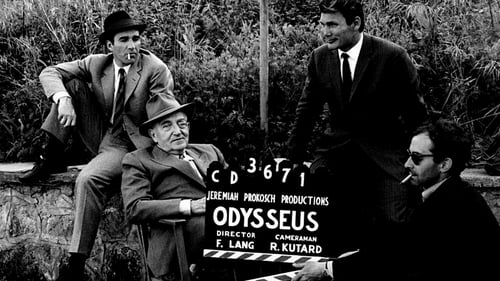
Producer
An hour-long discussion between Fritz Lang and Jean-Luc Godard in which they discuss a variety of art forms, the role of the cinema, their collaboration together, and much more. (Filmed in 1964 but released for TV in 1967.)

Director
An hour-long discussion between Fritz Lang and Jean-Luc Godard in which they discuss a variety of art forms, the role of the cinema, their collaboration together, and much more. (Filmed in 1964 but released for TV in 1967.)

Producer
Second in the documentary trilogy from mastermind Jacques Rivette, featuring a conversation between Jean Renoir and Michel Simon

Producer
The first of three documentaries by Rivette on Jean Renoir.

Director
A “Cinéastes de notre temps” series episode directed by french film critic André S. Labarthe, originally aired 4 October 1966.

Director
A “Cinéastes de notre temps” series episode directed by french film critic André S. Labarthe, originally aired 16 June 1966.

Director
A "Cinéastes de notre temps" series episode dedicated to french filmmaker Marcel Pagnol, originally aired in two parts.

Producer
Celluloid and Marble is based on Rohmer's own articles published in "Cahiers du cinéma", discussing film in relation to the other arts, maintaining that, in an age of cultural self-consciousness, cinema was “the last refuge of poetry” - the only contemporary art form from which metaphor could still spring naturally and spontaneously.

Director
A “Cinéastes, de notre temps” series episode directed by french film critic André S. Labarthe, never aired.

A peeping tom caught spying on a women's self-defense class is taken captive by the class leader. At first the class uses him as a training dummy, but his treatment at the hands of the ladies steadily becomes more dangerous and humiliating.

Producer

Director
A 1965 film by André S. Labarthe.

Producer
An episode of the television program Cinéastes de notre temps in which the director gives his first on-camera interview.

Director
A “Cinéastes, de notre temps” series episode directed by french film critic André S. Labarthe, never aired.

Director
A “Cinéastes, de notre temps” series episode directed by french film critic André S. Labarthe, never aired.

Director
A “Cinéastes, de notre temps” series episode directed by french film critic André S. Labarthe, never aired.

Director
Made for Cinéastes de notre temps series. In 1964, several French New Wave auteurs discuss the success and crisis of the wave. Featuring Claude Chabrol, François Truffaut, Jacques Rivette, Jean-Luc Godard, Jacques Rozier, Jacques Demy, Agnès Varda, Jean Rouch, and many others.

Self
An overview of Luis Buñuel's career. Includes an interview with the filmmaker.

(segment "Il nuovo mondo") (voice) (uncredited)
한 남자가 비행기에서 만난 스튜어디스에게 병적으로 빠져드는데, 정작 여자는 그의 지나친 관심에 거부감을 느낀다. 결국 그녀는 남자를 떼어놓기 위해 스스로의 외양을 정숙해 보이던 것에서 단정치 못하고 방탕한 모습으로 바꾼다. 이에 충격을 받은 남자는 자신이 예전에 촬영한 그녀의 모습을 벽에 영사시켜 놓고 그것을 바라보며 애타게 울부짖는다.

Paul
레코드 샵의 점원으로 일하는 나나는 영화를 사랑하고 배우를 동경하는 파리지이다. 그녀는 생계를 걱정해야 하는 힘든 삶 속에서도 언젠가는 세상을 놀라게 할 스타가 되겠다는 꿈을 가지고 있다. 그러나 그녀에 삶은 가혹하기만 하다. 자신의 꿈을 이해하지 못하는 남편, 돈을 빌려가고 소식이 없는 동료, 영화업자들에게 소개해주겠다며 나나를 이용하려는 에이전시 직원. 결국 나나는 삶의 고단함 속에 자신의 꿈을 포기한다. 비정한 도시에서 살아남기 위해 안간힘을 쓰던 나나는 우연히 남편에게 버림받고 '거리의 여자'가 된 옛 친구 이베뜨를 통해 포주 라울을 소개받는데...

Unfinished film by Jean Eustache . A couple kisses. A group of friends talk inside a room. One of them reads from a paper.
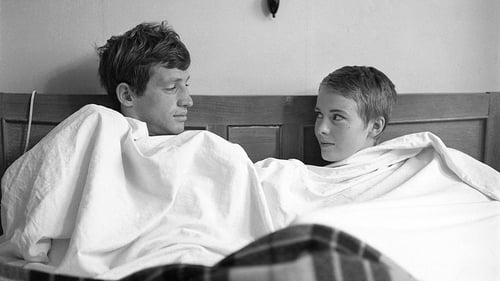
Journalist at Orly
영화 속의 갱으로 등장하는 험프리 보가트를 선망하는 좀도둑 미셸 푸가드는 차를 훔쳐 달리다가 무의식적으로 차안에 있던 총으로 경관을 죽이고 쫓기는 몸이 된다. 그러던 중 어느 모델의 지갑을 훔치다가 니스에서 만난 적이 있는 미국에서 유학 온 패트리샤를 다시 보게 되고 함께 도망 갈 것을 제의한다. 그들은 그녀의 작은 아파트에서 며칠을 함께 지내면서 그들은 책에 대해서, 죽음에 대해서 얘기를 나누며 즐거운 시간을 보낸다. 그리고 절도, 강도 행각을 벌이면서 그녀에게 정중하고, 삶과 죽음에 대해 두려워하지 않는 그에게 패트리샤도 매력을 느낀다. 그러나 패트리샤는 미셸을 사랑하는지 확신할 수가 없다.

Director

Director
A documentary about the dancer Sylvie Guillem on her daily round of classes, rehearsals and peformances.
